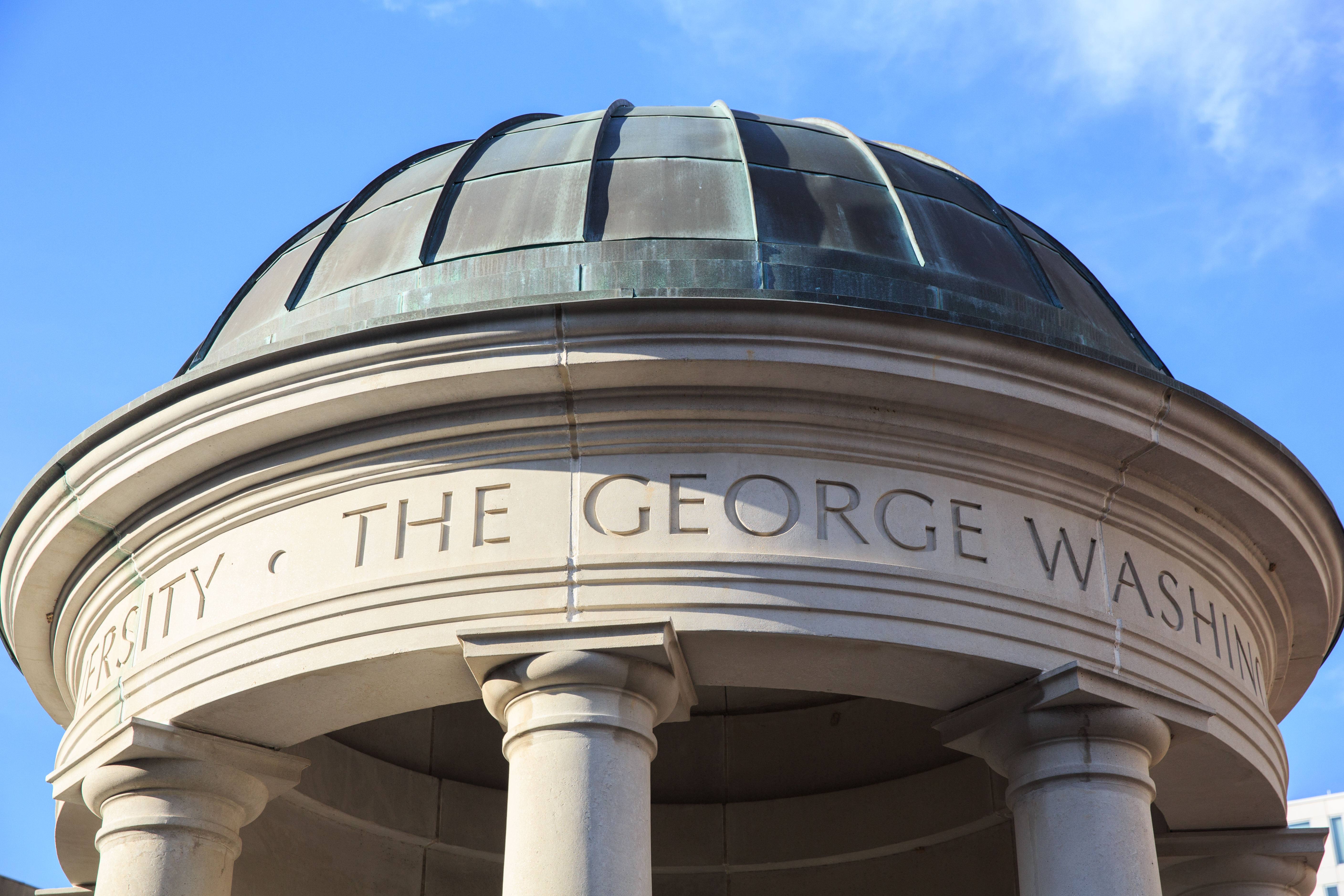The George Washington University Board of Trustees on Friday approved a framework encompassing principles, procedures and considerations for addressing the proposed renaming of on-campus buildings and memorials.
The decision endorsed the recommendation of the board-appointed Naming Task Force that, after receiving its charge from Board of Trustees Chair Grace Speights in late 2019, engaged in a community outreach effort that included town halls, online conversations with the leadership of the Faculty Senate and the Student Association as well as requests for questions and comments through the Board of Trustees web portal.
“As institutions across the nation grapple with how best to confront difficult legacies of racial injustice, our hope is that we have given the university a guidepost in the form of a useful set of questions to ask in the extraordinary circumstance of reconsidering the name of a building or memorial,” said Trustee and Naming Task Force Chair Mark Chichester, B.B.A. ’90, J.D. ’93. “I want to thank the many members of our community who shared their thoughts and concerns in helping us arrive at a framework that we hope will reasonably stand the test of time.”
In proposing the renaming framework (PDF), the task force also noted that reconsidering a name “should be a rare undertaking, pursued only in the most extraordinary circumstances.”
The principles underlying the process include:
- Embrace the role of the university as a training ground for citizens and future leaders and be true to the university mission: In summary, to educate, conduct scholarly research and publish.
- Approach each petition for renaming with the understanding that the interested constituency is the entire GW community, inclusive of those with whom many, or some, may sharply disagree.
- Establish credibility through meaningful outreach to, and engagement with, the GW community.
- Model the behaviors of listening and compromise, which are essential to a vibrant campus community and healthy democracy.
- Handle each individual petition with intellectual rigor and compassion for the individuals who will be impacted—on either side of the matter—by the university’s decisions on renaming requests.
- View history in context and with a longitudinal, future-oriented perspective that will serve the community beyond the particular moment.
The approved procedures provide that:
- Any GW student, faculty, staff or alumnus may submit a request for reconsideration of the naming of any campus building or memorial to the Office of the President via president
 gwu [dot] edu. Requests should include the basis for change and a supporting petition signed by at least 500 GW community members. (The petition requirement may be waived at the president’s discretion.)
gwu [dot] edu. Requests should include the basis for change and a supporting petition signed by at least 500 GW community members. (The petition requirement may be waived at the president’s discretion.) - Requests will be added to a GW online registry and reviewed on an individual basis by the president, who will consult with appropriate constituencies and appoint a special committee to research and evaluate the request.
- The special committee will then discuss its findings with the chair of the board, who will determine whether to present the request to the board. The board will then accept, deny or modify the recommendation and render a final decision.
During this process, reviewers should assess the strengths and weaknesses of each case based on six considerations, which are accompanied by detailed guidance in the framework:
- The prevalence and persistence of the namesake’s repugnant behavior.
- The harm caused by the namesake’s behavior.
- Strength and clarity of the historical evidence.
- The namesake’s relationship to the university.
- The university’s earlier consideration of the appropriateness of the name.
- Opportunity for education.
The fact-driven, shared learning approach that the task force took to fulfilling its charge should be a model for how the university contends with these questions in the future, Mr. Chichester said.
“I am grateful to the task force and all the students, faculty, staff and alumni in our community for their engagement on these important matters,” GW President Thomas LeBlanc said. “This principled framework will serve the university as we move forward in addressing renaming requests comprehensively and collaboratively. The administration will put in place the structures for receiving and resolving renaming requests as quickly as possible.”





